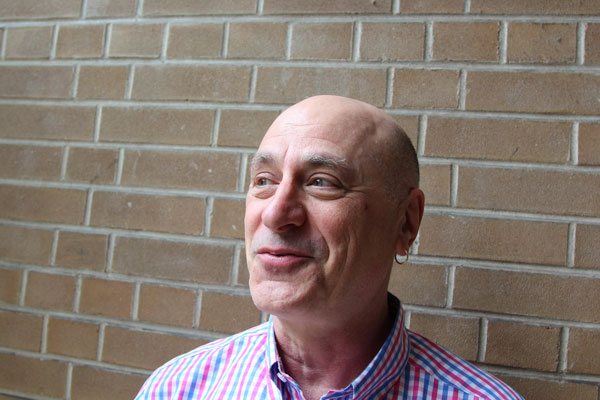“Future educators will value, not fear, fresh approaches, new solutions,” wrote U of T Professor Marshall McLuhan in 1967. Fifty years later, the pace of social and technological change has only accelerated. Adapting to that change was the focus of the EdTech Workshop 2017, hosted May 12 by U of T Engineering.
Since its launch in 2011 by the late Harpreet Dhariwal, the biennial EdTech Workshop has been bringing together teaching staff and instructors from across the University to discuss and experiment with fresh technologies, cutting edge techniques, and innovative physical spaces, all with the goal of enhancing the student learning experience.
“This workshop helps create important dialogue,” said Albert Huynh, Leadership Education Specialist at the Institute for Leadership Education in Engineering (ILead). “Bringing these people together in a physical space affords casual, inspired conversation. It is interfaceless, which removes the distance created by screens.”
A rich panel of speakers addressed topics such as virtual-reality biology laboratories, multi-camera lecture capture technology, and tools for evaluating team dynamics. A major point of discussion was the changing nature of the teacher-student relationship given the contemporary student’s unparalleled access to information.

Professor Peter Weiss, who instructs the first-year course Engineering Strategies and Practice sees the modern professor’s role as a facilitator of information — a guide to help students follow their own curiosities — rather than a holder of scarce information. He quotes an East Asian proverb: When the student is ready, the teacher will appear. “Why don’t we think the students are ready?” he asks.

In her keynote address, Susan McCahan (MIE), Professor and Vice-Provost, Innovations in Undergraduate Education, explored the idea of harnessing technology to foster flexible learning and rich collaboration in the classroom. “Students are in the classroom to make meaning of the [theory and skills] they’ve learned,” McCahan said. “If the learning is not applied beyond the final exam—not exercised anywhere else, in any other context—we’ve failed.”
McCahan advocates for spaces designed to imply the active sharing of information, such as the Technology Enhanced Active Learning (TEAL) classrooms that have been piloted at U of T Engineering for the last three years. The forthcoming Centre for Engineering Innovation and Entrepreneurship (CEIE) will incorporate several TEAL classrooms.
McCahan and several other speakers stressed the urgency of change, stating that universities must adapt or they will cease to be relevant. In doing so, they were once again echoing the spirit of McLuhan:
“In all of this, the school — that is, an institution of learning confined to a building or buildings — can continue to hold a central position only if it changes fast enough to keep pace with the seemingly inevitable changes in the outside world.”
Learn more about engineering education at the Canadian Engineering Education Association’s annual conference (CEEA2017), hosted by U of T June 4-7, 2017.




